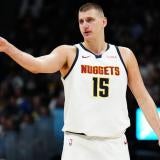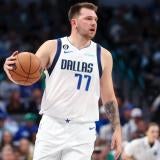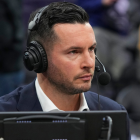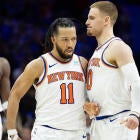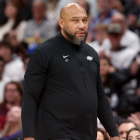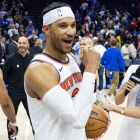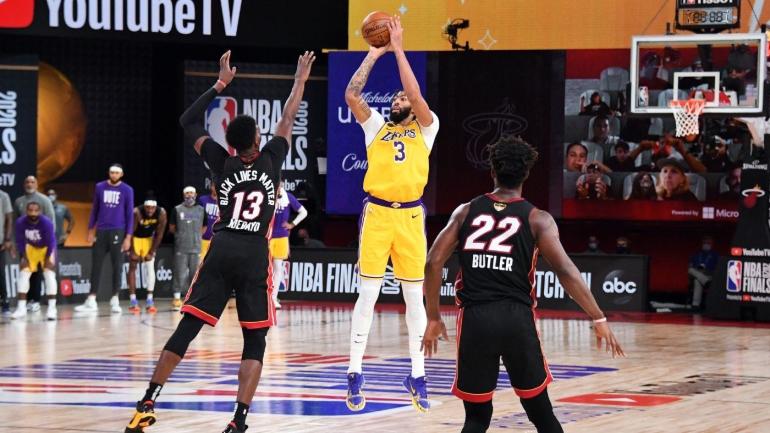
The NBA bubble has come and gone and it was a rousing success. First, no positive COVID-19 tests, which feels like a small miracle. Second, the basketball was tremendous. In some cases, perhaps too tremendous. Multiple scouts who spoke with CBS Sports said they would be hesitant to put a lot of stock in anything we saw in the bubble. The circumstances were just too unique.
With that in mind, here are three big questions coming out of the bubble.
1. Is Anthony Davis the new Kevin Durant?
In the bubble, Davis shot the lights out, particularly from the maligned mid-range -- where Davis went from a 37-percent shooter in the regular season to 49 percent in the bubble, per Cleaning the Glass. Just factoring in long mid-range shots, defined as 14 feet to the 3-point line, Davis went from 33 percent in the regular season to 49 percent in the playoffs.
In terms of frequency, Davis also took 25 percent more shots from the long mid-range than he did in the regular season, and 20 percent more from the overall mid-range in general, while taking almost 15 percent fewer shots at the rim.
All of this is to say, Davis was a more frequent, and a far-more deadly jump-shooter in the playoffs. So deadly, in fact, that those numbers we just rattled off are basically the exact mid-range equivalent of what Kevin Durant shot in his first two regular seasons with Golden State. That is mind-blowing. Durant -- whose mid-range efficiency rose to truly laughable levels in his first two playoff stints with Golden State; 56 freaking percent in 2016-17 -- is probably the best mid-range shooter in the game today and one of the best ever.
And so the question becomes: How much of his bubble shooting is sustainable for Davis? If he remains even close to this efficient from the mid-range, he truly becomes indefensible with his ability to face up and put the ball on the floor. Combine that with his post game and 3-point range, and that's terrifying. The only real hope of defending Davis is allowing him to settle for mid-range shots and playing the averages, but if these are going to be his averages moving forward, good night.
2. Is Jamal Murray an All-Star?
If we take his bubble performance at face value, Murray has made the "leap" into superstardom, which is basically what it takes to make the All-Star team as a guard in the Western Conference. Murray has never averaged more than 18.5 points per game in any of his four regular seasons, but he averaged 26.5 in this year's postseason. He has never averaged more than 4.8 assists in a regular season, but he averaged 6.6 in the postseason. He's never shot better than 37.8 percent from beyond the arc for a season, but he shot 45 percent in the postseason.
We've long known Murray was capable of being the best player on the floor on any given night, and he has a clear penchant for big-stage performances. The consistency wasn't always there. But he did it every game in this year's playoffs. On the rare nights that he wasn't scoring big, he was a consistent playmaker, using the threat of his scoring/shooting to draw attention and create for others.
Murray is in a unique situation in that he's the only point guard in the Western Conference with this kind of scoring ability that doesn't have control of his own offense. The Nuggets run more action through Nikola Jokic, which explains some of Murray's inconsistencies as a scorer because you just never know when it's going to be his game. Denver ran more through Murray in this year's playoffs because he was dominating, and if that continues there is nothing flukey about him being a lights-out -- if streaky -- shooter, and his playmaking isn't a big surprise to me either. His ball skills are elite. Always have been.
But is he really this great? Because what Murray did in the bubble is another level. It's something not too far from a Steph Curry or Damian Lillard level, frankly. Because Jokic will remain a prominent hub for Denver, I don't expect Murray to be among the league's leading scorers; he'll have huge nights and statistically blah nights but if his efficiency sustains anywhere near what we just saw from him in the postseason, watch out.
3. Is Kemba Walker done as a superstar?
I suppose whether Walker was ever a true superstar is a matter of opinion, but he averaged almost 26 points per game and was All-NBA in 2018-19 and he's made four straight All-Star games. The list of guys who've done that is short. Walker was very good in his first season with Boston; his diminished traditional box score production (fewer points, few assists, fewer shot attempts) was easily explainable by the increased talent around him and Boston's equitable offensive structure.
But Walker dropped off in the playoffs. After a solid series vs. Philadelphia in the first round, he shot under 35 percent from the field in three of the seven games vs. Toronto, and he only cracked the 20-point barrier twice. Over Games 6 and 7, he shot 1-for-13 from 3-point range. In Game 6, he scored five points. In Game 7, he scored 14.
Walker mixed in some very good games, too, making for an up-and-down postseason showing for what had become one of the more dependable scorers/creators in the league, but even when he had it going, he just never had that feeling that he was the best player on the floor, at least not for very long. To be fair, he was the guy teams often chose to double team, and he pretty clearly wasn't fully healthy; his knee nagged him throughout the latter part of the season and that didn't go away in Orlando. He lacked normal explosion and side-to-side shiftiness off the dribble.
Perhaps that's the story here. Kemba's health. Maybe once he gets back to 100 percent physically, he'll be back to his old self. But that doesn't feel like a sure thing. He's crested the 30-year-old mark now, and he's not going to be the same kind of focal point as the Celtics move forward with Jayson Tatum as their clear go-to player, heir egalitarian principles notwithstanding.
Walker is owed $108 million over the next three years if he exercises his $37.6 million player option in 2023. He's been fantastic in the locker room and his impact on this Celtics team goes way beyond the court, but him being a No. 1-type option remains the bulk of his value. Is he still that player?







